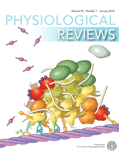
Physiological Reviews
Scope & Guideline
Exploring the Depths of Physiological Science
Introduction
Aims and Scopes
- Cardiovascular Physiology:
Explores mechanisms of cardiac function, ion channel regulation, and the pathophysiology of cardiovascular diseases, highlighting advancements in treatment strategies and molecular insights. - Neurophysiology:
Investigates the neurobiological underpinnings of behavior, sensory processing, and neurological disorders, addressing both cellular mechanisms and systemic implications. - Metabolic and Endocrine Physiology:
Analyzes hormonal regulation, metabolic pathways, and their impacts on health and disease, particularly in relation to conditions such as diabetes and obesity. - Respiratory Physiology:
Focuses on the mechanics of respiration, the role of the microbiome in respiratory health, and the physiological responses to environmental stressors like climate change. - Physiology of Aging and Disease:
Reviews the physiological changes associated with aging and the development of age-related diseases, emphasizing the importance of lifestyle factors and therapeutic interventions. - Systems Biology Approaches:
Utilizes integrative frameworks to understand complex physiological systems, including the interaction of various biological pathways and their implications in health and disease.
Trending and Emerging
- Impact of COVID-19 on Physiology:
A significant increase in publications addressing the physiological implications of COVID-19, including its effects on multiple organ systems, immune response, and long-term health outcomes. - Artificial Intelligence in Health Care:
Emerging discussions surrounding the integration of AI in physiological research and healthcare delivery, emphasizing its potential for improving diagnostics and treatment strategies. - Microbiome and Health:
A growing emphasis on the role of the microbiome in various physiological processes, particularly its influence on immune function and metabolic health. - Stress Physiology and Resilience:
Research focusing on the neurobiology and systems biology of stress resilience is gaining traction, reflecting increased interest in mental health and its physiological connections. - Translational and Regenerative Medicine:
A rising trend in studies related to regenerative therapies, including stem cell research and tissue engineering, particularly in the context of cardiovascular and metabolic diseases.
Declining or Waning
- Obesity and Cardiomyopathy:
Although still relevant, the specific focus on obesity-related cardiac issues has seen a decrease, possibly due to a saturation of existing knowledge and a shift towards broader metabolic studies. - Traditional Endocrinology:
Classic topics in endocrinology are being overshadowed by newer insights into metabolic physiology and the role of emerging technologies, such as artificial intelligence in healthcare. - Basic Mechanistic Studies of Exercise Physiology:
While exercise physiology remains important, there is a noticeable decline in purely mechanistic studies, with a shift towards applied and translational research that connects exercise to health outcomes. - Single-Organ Studies:
Research focusing exclusively on single-organ systems (e.g., liver or kidney) is becoming less common as integrated physiological approaches gain traction, emphasizing the interconnectedness of body systems.
Similar Journals

PHYSIOLOGICAL RESEARCH
Connecting Researchers through Open Access DiscoveryPHYSIOLOGICAL RESEARCH, published by the Academy of Sciences of the Czech Republic, Institute of Physiology, serves as a prominent platform for scholarly contributions in the field of physiology and related disciplines. With an impact factor that highlights its significance—ranking in the Q2 category in Medicine (miscellaneous) and the Q3 in Physiology as of 2023—this journal has established itself as a vital resource for researchers, professionals, and students. Since becoming Open Access in 1991, it has broadened its reach, ensuring that vital research is freely available to academic communities worldwide. Covering a diverse range of topics, PHYSIOLOGICAL RESEARCH attracts submissions that advance the understanding of physiological processes, making it an indispensable resource for those invested in the field. Based in Prague, Czech Republic, this journal offers an enriching medium for discourse and dissemination in physiology, contributing to the global scientific landscape.
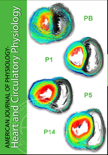
AMERICAN JOURNAL OF PHYSIOLOGY-HEART AND CIRCULATORY PHYSIOLOGY
Advancing cardiovascular knowledge for a healthier tomorrow.AMERICAN JOURNAL OF PHYSIOLOGY-HEART AND CIRCULATORY PHYSIOLOGY, published by the American Physiological Society, is a premier journal dedicated to advancing the understanding of cardiovascular physiology. With an ISSN of 0363-6135 and an E-ISSN of 1522-1539, this esteemed journal has been a vital resource since its inception in 1977, and continues to publish cutting-edge research that shapes the fields of cardiology and physiology. Recognized as a Q1 journal in multiple categories, it ranks impressively within the top tier of its fields, including a notable 18th percentile rank in Physiology (medical). The journal’s impact factor and extensive reach in the academic community affirm its significance in promoting innovative studies and insights. While it does not offer open access options, the journal remains accessible through institutional subscriptions, making it an essential tool for researchers, professionals, and students alike, who are keen to stay abreast of the latest developments in heart and circulatory physiology. For further information, the journal is based in the United States at 6120 Executive Blvd, Suite 600, Rockville, MD 20852. As a cornerstone of cardiovascular research, it invites contributions that push the boundaries of knowledge and enhance clinical practice.
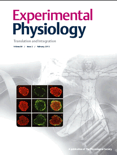
EXPERIMENTAL PHYSIOLOGY
Exploring the intricate dance of nutrition and physiology.EXPERIMENTAL PHYSIOLOGY, published by WILEY, stands as a vital resource in the fields of Nutrition and Dietetics and Physiology, providing high-quality, peer-reviewed research since its inception in 1990. With an impressive categorization into the Q2 quartile in these domains, the journal emphasizes the integration of experimental and clinical findings, making significant contributions to our understanding of physiological processes and nutritional impacts on health. The journal operates within a competitive landscape, ranked significantly in Scopus, showcasing its relevance to both the medical community and nutritional sciences, as evidenced by its rankings in Nursing, Medicine, and Biochemistry. Though it is not currently open access, the journal remains an indispensable tool for researchers, professionals, and students seeking to deepen their knowledge and stay updated on cutting-edge research. With a publication window extending to 2024, EXPERIMENTAL PHYSIOLOGY continues to influence the academic discourse and promote advancements in its respective fields.
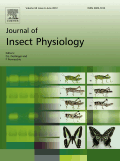
JOURNAL OF INSECT PHYSIOLOGY
Advancing Knowledge in Insect PhysiologyThe Journal of Insect Physiology, an esteemed publication by Pergamon-Elsevier Science Ltd, stands at the forefront of the study of insect biology and physiology. Established in 1957 and set in the United Kingdom, this journal has consistently contributed to advancing our understanding of the intricate physiological processes of insects throughout its converged years ending in 2024. With an impressive impact factor that solidifies its reputation, it ranks in the 1st quartile for Insect Science and the 2nd quartile for Physiology as per the 2023 metrics. The journal's Scopus rankings also reflect its influence, boasting a notable position in both Agricultural and Biological Sciences and Biochemistry, Genetics, and Molecular Biology. Although currently not open access, it provides researchers and professionals with invaluable insights and groundbreaking research essential for the field. With its comprehensive scope, the Journal of Insect Physiology is dedicated to fostering scientific dialogue and innovation, making it an indispensable resource for scholars and students alike.

Physiology and Pharmacology
Exploring the frontiers of biological systems and drug action.Physiology and Pharmacology is a distinguished open access journal that has been disseminating high-quality research in the fields of physiology and pharmacology since its inception in 1997. Published by the Iranian Society of Physiology & Pharmacology, this journal offers a platform for scholars and practitioners to share innovative findings and advancements that contribute to the understanding of biological systems and drug action. With its ISSN 2476-5236 and E-ISSN 2476-5244, it ensures global reach and accessibility. The journal is positioned in the third quartile for Linguistics and Language and fourth quartile in both Pharmacology and Physiology categories according to Scopus rankings, reflecting a commitment to expanding knowledge within these interdisciplinary domains. Set within the academic landscape of Iran, the journal aims to bridge regional research with the international community, providing valuable insights into physiological processes and pharmacological developments. In light of its open access model, the Physiology and Pharmacology journal plays a crucial role in enhancing the visibility of research outcomes and fostering collaboration among researchers, professionals, and students on a global scale.

Current Opinion in Physiology
Exploring the Frontiers of Physiological ResearchCurrent Opinion in Physiology, published by Elsevier, is a leading journal dedicated to the dynamic field of physiology. With an E-ISSN of 2468-8673, this journal provides a platform for the latest insights and perspectives, reflecting the evolving landscape of physiological research. Operating from the United Kingdom, the journal holds a respectable impact factor and is ranked Q2 in both general physiology and medical physiology categories, highlighting its prominence among the global academic community. With Scopus rankings placing it in the 64th and 60th percentiles within its respective categories, Current Opinion in Physiology serves as an essential resource for researchers, professionals, and students eager to stay informed about innovative theories and emerging trends in physiology. The publication emphasizes high-quality reviews that summarize current knowledge and future directions, ensuring readers gain valuable insights applicable in both clinical and research settings.
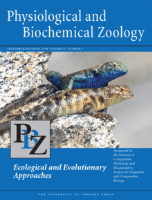
PHYSIOLOGICAL AND BIOCHEMICAL ZOOLOGY
Advancing Knowledge in Physiology and BiochemistryPhysiological and Biochemical Zoology is a distinguished peer-reviewed journal published by University of Chicago Press, focusing on the interrelated fields of animal physiology, biochemistry, and zoology. With a strong commitment to advancing scientific understanding, this journal serves as a vital resource for researchers, professionals, and students alike, providing a platform for the latest findings and advancements in the field. Ranking in the top quartile (Q1) in Animal Science and Zoology as of 2023, and showcasing a substantial convergence of historical data from 1999 to 2023, its impact in the academic community is underscored by its engagement with high-quality research. While it also appears in the third quartile for Biochemistry and Physiology, the journal successfully integrates these disciplines, reflecting the complexity of biological systems. Available for reading via various access options, this journal is essential for anyone seeking to deepen their knowledge or contribute to the field of Zoological sciences.

FISH PHYSIOLOGY AND BIOCHEMISTRY
Advancing Understanding of Fish PhysiologyFISH PHYSIOLOGY AND BIOCHEMISTRY, published by Springer, is a leading journal in the fields of aquatic science, biochemistry, and physiology, with an impressive trajectory since its inception in 1986 and continuing through 2024. Operating from the Netherlands, this journal serves as a vital platform for researchers, professionals, and students alike, showcasing innovative studies that explore the physiological and biochemical aspects of fish, contributing significantly to our understanding of aquatic ecosystems and their inhabitants. With a robust impact factor reflected in its Q1 status in Aquatic Science and notable rankings in other relevant categories, FISH PHYSIOLOGY AND BIOCHEMISTRY maintains a strong scholarly influence, evidenced by its Scopus ranking within the top quartiles of various biological sciences disciplines. While the journal does not currently offer open access options, it remains a cornerstone for advancing knowledge and fostering collaboration within the community dedicated to aquatic biology and related fields.

American Journal of Physiology-Regulatory, Integrative and Comparative Physiology
Advancing Knowledge in Regulatory and Integrative PhysiologyThe American Journal of Physiology-Regulatory, Integrative and Comparative Physiology, published by the American Physiological Society, serves as a premier platform for disseminating cutting-edge research in the fields of physiology, emphasizing regulatory, integrative, and comparative studies that advance our understanding of bodily functions. With an ISSN of 0363-6119 and E-ISSN of 1522-1490, this esteemed journal is recognized for its substantial impact, maintaining a 2023 Q2 ranking in both the physiology and medical physiology categories as well as commendable positions in Scopus rankings. The journal has been pivotal since its inception in 1977 and continues to foster interdisciplinary dialogue among researchers, professionals, and students alike, contributing significantly to the evolving landscape of physiological sciences. Although it operates under a traditional subscription model, its commitment to high-quality, peer-reviewed content ensures that it remains an essential resource for anyone engaged in physiological research and education.

Physiological Reports
Bridging Gaps in Physiological Research and PracticePhysiological Reports is a pioneering open-access journal published by WILEY, dedicated to advancing the field of physiology through the dissemination of high-quality research. Since its inception in 2013, this journal has provided a platform for innovative studies in both general physiology and medical physiology, making significant contributions to our understanding of biological processes. With an impact factor that reflects its growing influence—as evidenced by its placement in the Q2 category for physiology and medical physiology in 2023—Physiological Reports is positioned as a vital resource for researchers and practitioners alike. The journal encourages the submission of diverse studies ranging from cellular mechanisms to systemic physiology, presenting a unique opportunity for authors to reach a global audience without access barriers. It has established a reputation for rigorous peer review and timely publication, ensuring that cutting-edge research is readily available to stimulate further inquiry and collaboration in the scientific community.